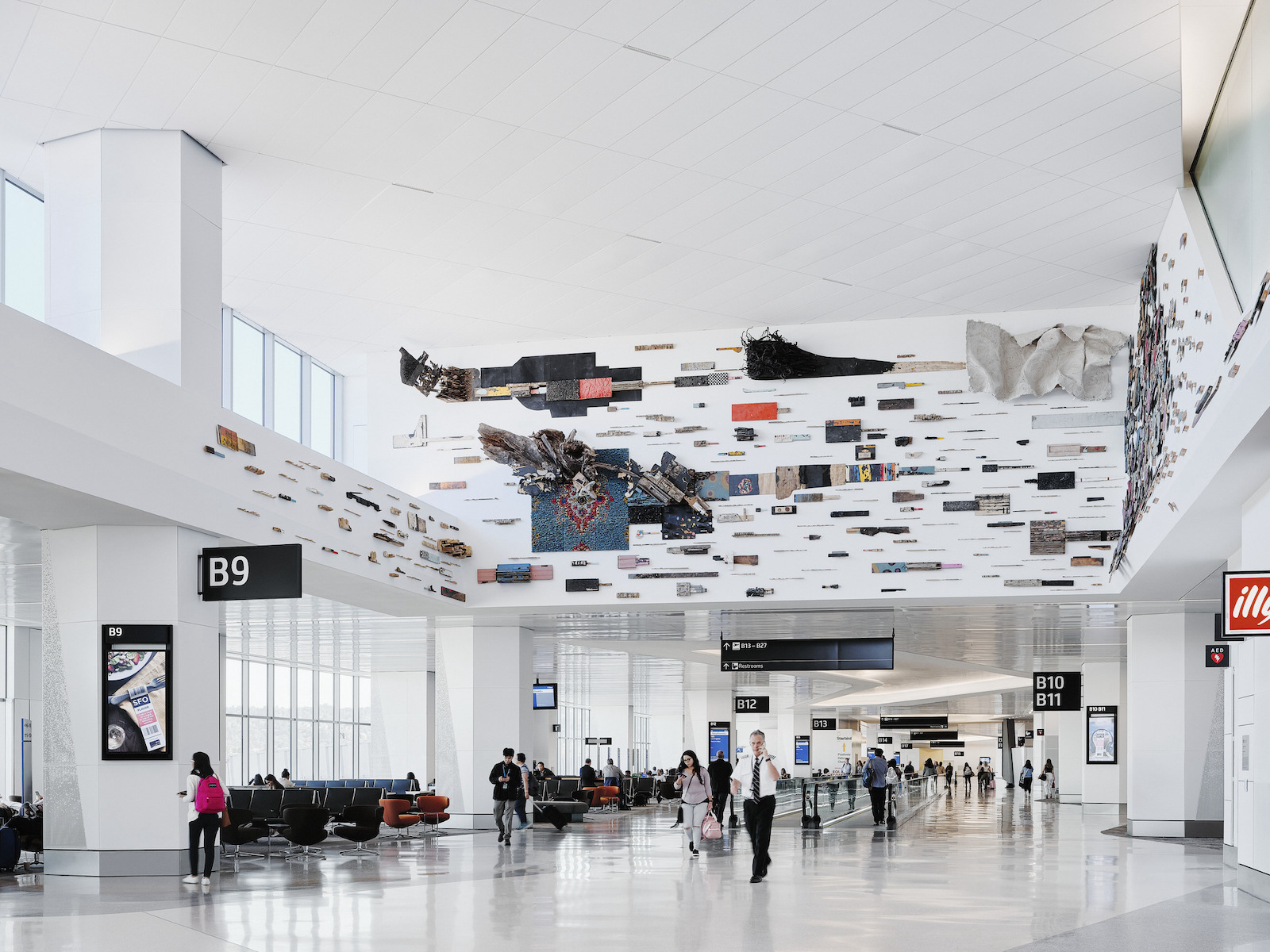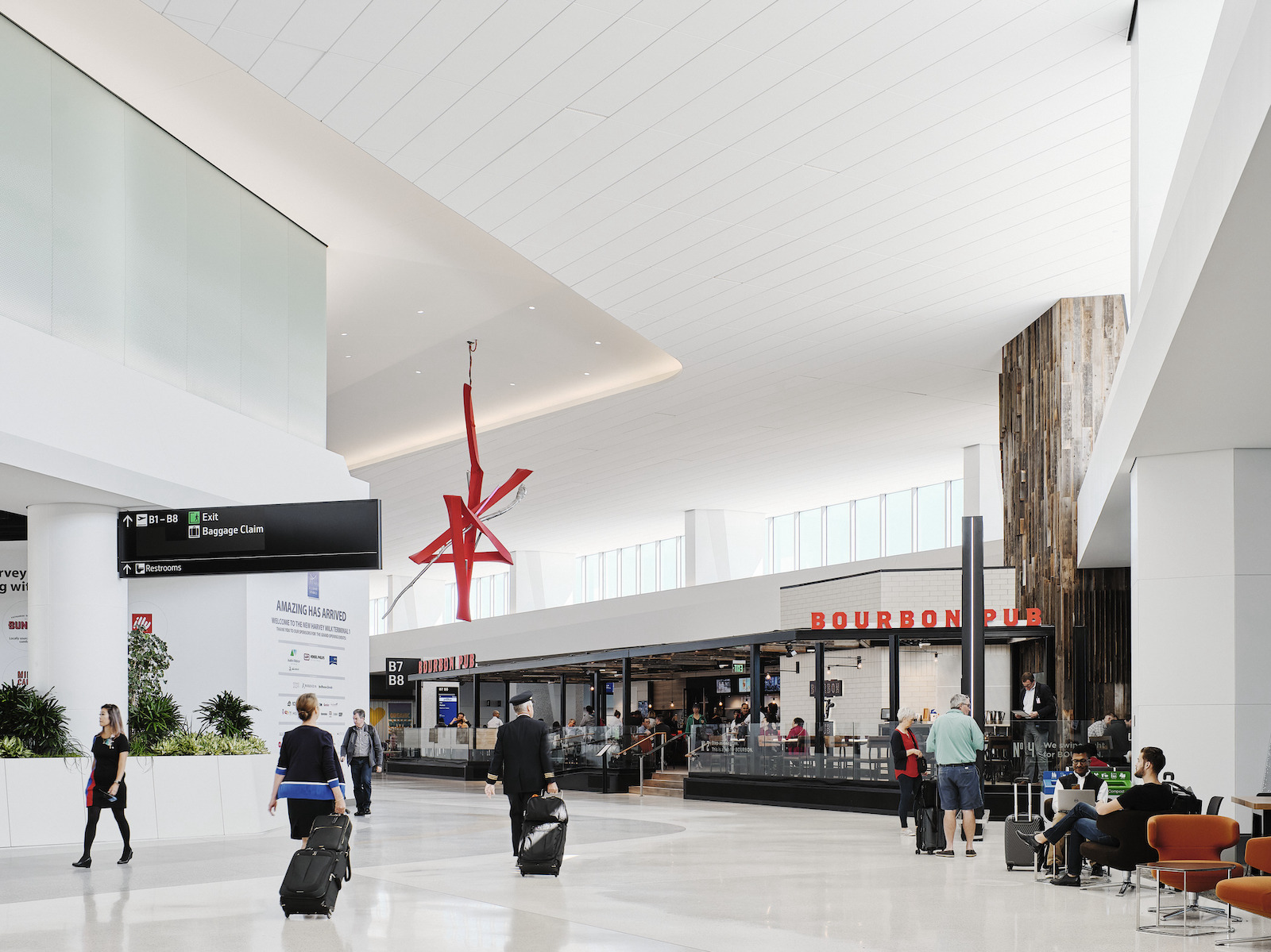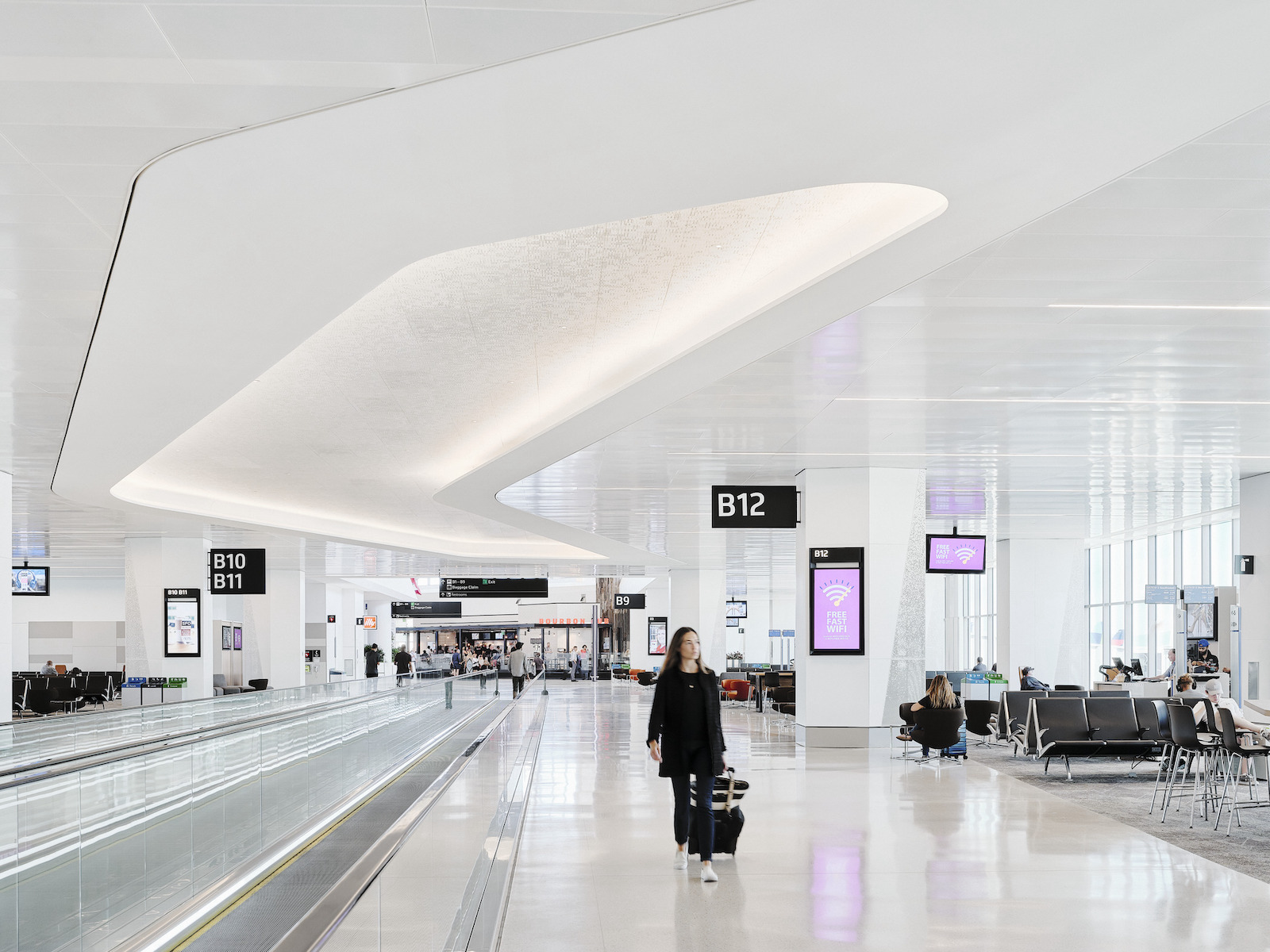The San Francisco International Airport (SFO) announced that Harvey Milk Terminal 1 has become the first airport terminal in the world to earn Platinum certification using the latest standards from the Leadership in Energy and Environmental Design (LEED) program.
The LEED v4 raises the bar for the design, construction, and high-performance structures. SFO earned this certification for Boarding Area B in Harvey Milk Terminal 1. This includes the 25-gate concourse, concession space, and connector to the U.S. Customs Federal Inspection Area.

HIGHLIGHTS OF THE HARVEY MILK TERMINAL PROJECT
- A tote-based Independent Carrier System (ICS) to manage checked baggage, the first in the U.S., which uses 50% less energy and is easier to operate and maintain than previous systems
- Self-energizing (regenerative) elevators recycle energy, rather than wasting it as heat
- Go-Slow escalators and moving walkways that reduce speed when not in use to save energy
- Radiant heating and cooling to complement displacement ventilation to provide energy efficiency, improved indoor air quality and enhanced passenger comfort
- Dynamic glazed windows that change with the sun’s location, to reduce glare and improve comfort
- Large windows harnessing daylight to reduce the need for electric lighting
- Controllable, dimmable, long-life light-emitting diode (LED) fixtures throughout the facility
- Low-flow, hands-free bathroom fixtures and faucets save water in our drought-prone state
- Roof-mounted photovoltaic panels, providing renewable power for the facility
- Highly efficient outdoor air filtration system to remove pollutants and odor to provide healthier indoor environments with minimal efficiency impacts
- Building materials and furnishings with low-volatile organic compound (VOC) emissions
- Selection of products, systems and materials with the least environmental or planetary impact based upon Health Product Declarations (HPDs) and Environmental Product Declarations (EPDS)
- Integrated Building Management System measures energy and water use and adjusts equipment to be more efficient
- Seamless access to all facilities, including public transit, via the AirTrain electric people mover, which eliminated over 600,000 miles of bus trips annually
- Recycling and diversion of approximately 95% of construction waste from landfill

“We are truly proud to be the first airport in the world to earn LEED v4 Platinum certification,” said Airport Director Ivar C. Satero in the release. “This achievement continues a tradition of leadership in sustainable facilities that includes the first LEED Gold airport terminal in the United States, and the world’s first zero net energy facility at an airport. My thanks go out to the entire project team for continuing to push the envelope for what airports can accomplish to support our environmental goals.”
PROJECT TEAM FOCUSED ON COLLABORATION
A collaboration between HKS, Arup, Woods Bagot, ED2 International, Austin Commercial, Webcor, and Kendall Young Associates, the design takes advantage of every innovation available, beginning with repurposing the existing Boarding Area B to achieve the new 225,000-sf building.
Materials and systems were selected based on having the least environmental impact, such as carbon-sequestering concrete and nontoxic carpet tiles and finishes.
Other features include a sophisticated baggage carousel and photovoltaic panels on the roof, which generate the energy required for operations.
The project management team includes:
- BAB Design-builder: Austin Commercial & Webcor Builders Joint Venture with HKS / Woods Bagot / ED2 International / Kendall Young Associates
- BAB Sustainability Coordinator: Arup
- BAB Construction Manager: WSP / AGS
Related Stories
Mixed-Use | Oct 20, 2022
ROI on resilient multifamily construction can be as high as 72%
A new study that measured the economic value of using FORTIFIED Multifamily, a voluntary beyond-code construction and re-roofing method developed by the Insurance Institute for Business & Home Safety (IBHS), found the return can be as high as 72%.
Building Team | Oct 18, 2022
Brasfield & Gorrie chairman’s home vandalized by anti-development activists
Activists vandalized the home and vehicles of Miller Gorrie, chairman of Birmingham-based Brasfield & Gorrie, in protest of a planned $90 million, 85-acre police, fire and public safety training center in Atlanta.
Codes and Standards | Oct 17, 2022
Ambitious state EV adoption goals put pressure on multifamily owners to provide chargers
California’s recently announced ban on the sale of new gas-powered vehicles starting in 2035—and New York’s recent decision to follow suit—are putting pressure on multifamily property owners to install charging stations for tenants.
| Oct 13, 2022
Boston’s proposed net-zero emissions code has developers concerned
Developers have raised serious concerns over a proposed new energy code by the City of Boston that would require newly constructed buildings over 20,000 sf to immediately hit net-zero emissions goals.
Building Team | Oct 12, 2022
Real estate development practices worsened impact of Hurricane Ian
A century ago, the southwest Florida coast was mostly swamps and shoals, prone to frequent flooding and almost impossible to navigate by boat.
Standards | Oct 11, 2022
Peter Templeton named new USGBC and GBCI president and CEO
The U.S. Green Building Council (USGBC) and Green Business Certification Inc. (GBCI) appointed Peter Templeton as president and CEO.
Legislation | Oct 10, 2022
Chicago’s updated building energy code provides incentives for smart HVAC, water appliances
The Chicago City Council recently passed the 2022 Chicago Energy Transformation Code that is intended to align with the city’s goal of reducing carbon emissions by 62% from 2017 levels by 2040.
Contractors | Oct 6, 2022
Modular construction gets boost from impacts of the pandemic
The impact of the Covid pandemic on the construction industry appears to be fueling demand for modular construction methods, especially in the western U.S. and Canada.
Fire and Life Safety | Oct 4, 2022
Fire safety considerations for cantilevered buildings
Bold cantilevered designs are prevalent today, as developers and architects strive to maximize space, views, and natural light in buildings. Cantilevered structures, however, present a host of challenges for building teams, according to José R. Rivera, PE, Associate Principal and Director of Plumbing and Fire Protection with Lilker.
| Sep 30, 2022
Lab-grown bricks offer potential low-carbon building material
A team of students at the University of Waterloo in Canada have developed a process to grow bricks using bacteria.

















